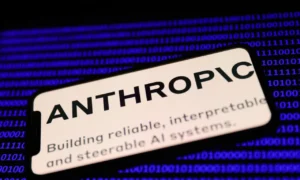Medical billing in America is broken. Claims get rejected for missing codes, incomplete forms, or bureaucratic technicalities that have nothing to do with patient care. Now one startup thinks it can fix the problem before it starts.
Charta Health just closed a $22 million Series A round led by Bain Capital Ventures to deploy AI that catches billing mistakes while doctors are still treating patients. The approach represents a fundamental shift from the usual strategy of fixing errors after insurance companies have already said no.
The Upstream Solution
Most revenue cycle companies play defense, scrambling to fix rejected claims and appeal denials after the damage is done. Charta plays offense instead.
Their platform integrates directly with electronic medical records to scan patient charts in real time. As physicians document care, the AI flags missing diagnosis codes, incomplete procedure notes, or documentation gaps that typically trigger claim rejections weeks later.
The system works inside existing workflows rather than replacing them. Doctors don’t learn new software or switch between systems. They just get gentle alerts when something needs attention before the chart closes.
Bain Capital was joined by SV Angel, South Park Commons, Madrona Venture Group, and Refract Ventures in the funding round. The money will expand Charta’s engineering team and accelerate partnerships with major health systems and insurance companies.
Following the Money Trail
Healthcare administrative waste costs roughly $68 billion annually, with billing errors driving much of that loss. Small practices often dedicate entire staff positions to chasing down rejected claims and resubmitting corrected paperwork.
The human cost goes beyond dollars. Medical assistants spend hours on hold with insurance companies. Physicians delay care decisions while waiting for pre-authorizations. Patients receive surprise bills months after treatment because of coding mistakes they never knew existed.
Charta’s founders, Justin Liu and Scott Morris, witnessed similar inefficiencies during their time at Rockset, a real-time analytics company that OpenAI acquired last year. Healthcare’s data problems felt familiar but more consequential.
“We realized the same infrastructure challenges we solved for tech companies were magnified tenfold in healthcare,” Liu explains. Every missed code or incomplete form creates a ripple effect that touches providers, payers, and patients.
The Integration Challenge
The real test comes down to execution at scale. Healthcare systems use dozens of different EMR platforms, each with unique data structures and workflows. Insurance companies maintain their own coding requirements and prior authorization rules.
Charta must prove their AI can navigate this complexity without creating new friction points. Early deployments have focused on cardiology and orthopedic practices, where procedure coding tends to be more standardized.
Success in specialty practices could open doors to larger health systems processing thousands of claims daily. But scaling will require partnerships with EMR vendors and careful attention to clinician workflows that already feel overwhelming.
Industry Momentum Building
This funding arrives as healthcare AI moves from experimental to operational. Regulatory pressure around administrative burden has intensified, while new interoperability standards make data integration more feasible.
Other companies are attacking different pieces of the revenue cycle puzzle. Some focus on prior authorization automation. Others streamline claim submissions or appeals processes. Charta’s bet is that prevention beats treatment, even in healthcare administration.
The approach could extend beyond billing into other administrative pain points. Prior authorization, care coordination, and quality reporting all suffer from similar documentation gaps and workflow inefficiencies.
If AI can reliably prevent billing errors, expect similar prevention-focused tools to emerge across healthcare operations. The industry has spent decades building systems to catch and fix mistakes. Now it might finally invest in avoiding them altogether.
Will upstream intervention finally break healthcare’s administrative logjam? At $22 million, investors are betting it’s worth finding out.



























